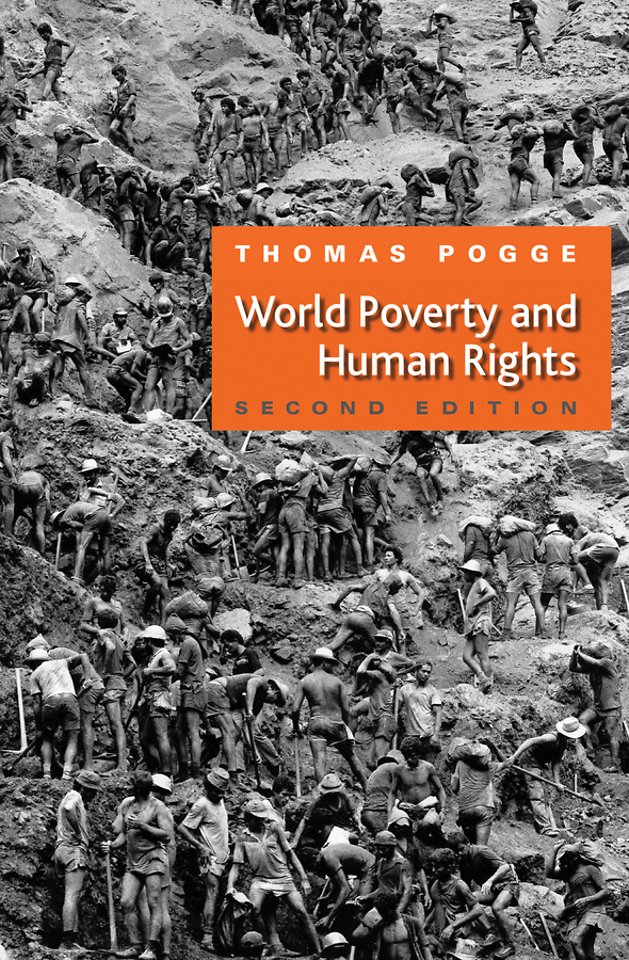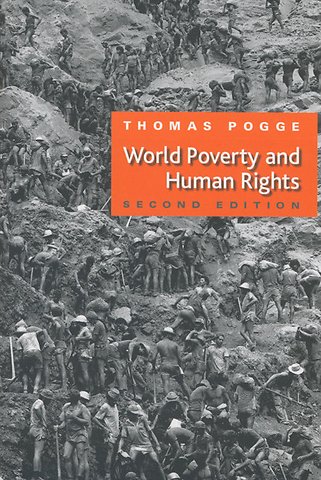World Poverty and Human Rights
Cosmopolitan Responsibilities and Reform
Samenvatting
Zo'n tweeënhalf miljard mensen leven in armoede en hebben geen toegang tot eerste levensbehoeften zoals goede voeding, veilig drinkwater, onderdak en gezondheidszorg. Eenderde van alle doden heeft een oorzaak die met armoede te maken heeft; 18 miljoen per jaar, waarvan 10 miljoen kinderen onder de 5 jaar.
Hoewel het probleem op menselijke schaal enorm is, is het economisch gezien miniem. Het zou slecht één procent van het nationale inkomen van de rijke landen kosten om de ergste armoede op te lossen. En toch zijn deze landen niet bereid dit offer te dragen waarmee ze de oneerlijke verdeling van rijkdom in de wereld in stand houden. En de meeste burgers in de welvaartsstaten hebben ook niet het idee dat dit verkeerd is.
Thomas Pogge tracht in dit boek uit te leggen hoe dit idee zo sterk postgevat heeft. Hij analyseert hoe onze morele en economische waarden zich hebben aangepast waardoor we ons niet meer verbonden voelen met de massale armoede buiten onze grenzen. In dit boek biedt de auteur een standaard voor globale economische rechtvaardigheid en doet hij voorstellen hoe we dit kunnen bereiken.
Specificaties
Inhoudsopgave
I. Some Cautions About Our Moral Judgements
II. Four Easy Reasons to Ignore World Poverty
III. Sophisticated Defenses of our acquiescence in world poverty
IV. Does Our New Global Economic Order Really Not Harm the Poor?
V. Responsibilities and Reforms
1. Human Flourishing and Universal Justice
1.0 Introduction
1.1 Social Justice
1.2 Paternalism
1.3 Justice in First Approximation
1.4 Essential Refinements
1.5 Human Rights
1.6 Specification of Human Rights and Responsibilities for their Realization
1.7 Conclusion
2. How Should Human Rights be Conceived?
2.0 Introduction
2.1 From Natural Law to Rights
2.2 From Natural Rights to Human Rights
2.3 Official Disrespect
2.4 The Libertarian Critique of Social and Economic Rights
2.5 The Critique of Social and Economic Rights as 'Manifesto Rights'
2.6 Disputes about Kinds of Human Rights
3. Loopholes in Moralities
3.0 Introduction
3.1 Types of Incentives
3.2 Loopholes
3.3 Social Arrangements
3.4 Case 1: The Converted Apartment Building
3.5 Case 2: The Homelands Policy of White South Africa
3.6 An Objection
3.7 Strengthening
3.8 Fictional Histories
3.9 Puzzles of Equivalence
3.10 Conclusion
4. Moral Universalism and Global Economic Justice
4.0 Introduction
4.1 Moral Universalism
4.2 Our Moral Assessment of National and Global Economic Orders
4.3 Some Factual Background about the Global Economic Order
4.4 Conceptions of National and Global Economic Justice Contrasted
4.5 Moral Universalism and David Miller's Contextualism
4.6 Contextualist Moral Universalism and John Rawls's Moral Conception
4.7 Rationalizing Divergent Moral Conceptions Through a Double Standard
4.8 Rationalizing Divergent Moral Conceptions Without a Double Standard
4.9 The Causal Role of Global Institutions in the Persistence of Severe Poverty
4.10 Conclusion
5. The Bounds of Nationalism
5.0 Introduction
5.1 Common Nationalism – Priority for the Interests of Compatriots
5.2 Lofty Nationalism – The Justice-for-Compatriots Priority
5.3 Explanatory Nationalism – The Deep Significance of National Borders
5.4 Conclusion
6. Achieving Democracy
6.0 Introduction
6.1 The Structure of the Problem Faced by Fledgling Democracies
6.2 Reducing the Expected Rewards of Coups d'Etat
6.3 Undermining the Borrowing Privilege of Authoritarian Predators
6.4 Undermining the Resource Privilege of Authoritarian Predators
6.5 Conclusion
7. Cosmopolitanism and Sovereignty
7.0 Introduction
7.1 Institutional Cosmopolitanism Based on Human Rights
7.2 The Idea of State Sovereignty
7.3 Some Main Reasons for a Vertical Dispersal of Sovereignty
7.4 The Shaping and Reshaping of Political Units
7.5 Conclusion
8. Eradicating Systemic Poverty: Brief for a Global Resources Dividend.
8.0 Introduction
8.1 Radical Inequality and Our Responsibility
8.2 Three Grounds of Injustice
8.3 A Moderate Proposal
8.4 The Moral Argument for the Proposed Reform
8.5 Is the Reform Proposal Realistic?
8.6 Conclusion
9. Pharmaceutical Innovation: Must We Exclude the Poor?
9.0 Introduction
9.1 The TRIPS Agreement and its aftermath
9.2 The argument from beneficial consequences
9.3 Toward a better way of stimulating research and development of essential medicines
9.4 Differential pricing
9.5 The public-good strategy for extending access to essential medicines
9.6 A full-pull plan for the provision of pharmaceuticals
9.7 Specifying and implementing the basic full-pull idea
9.8 Justifying the plan to affluent citizens and their representatives
Last Words
Notes
Bibliography
Index
Anderen die dit boek kochten, kochten ook
Net verschenen
Rubrieken
- aanbestedingsrecht
- aansprakelijkheids- en verzekeringsrecht
- accountancy
- algemeen juridisch
- arbeidsrecht
- bank- en effectenrecht
- bestuursrecht
- bouwrecht
- burgerlijk recht en procesrecht
- europees-internationaal recht
- fiscaal recht
- gezondheidsrecht
- insolventierecht
- intellectuele eigendom en ict-recht
- management
- mens en maatschappij
- milieu- en omgevingsrecht
- notarieel recht
- ondernemingsrecht
- pensioenrecht
- personen- en familierecht
- sociale zekerheidsrecht
- staatsrecht
- strafrecht en criminologie
- vastgoed- en huurrecht
- vreemdelingenrecht







